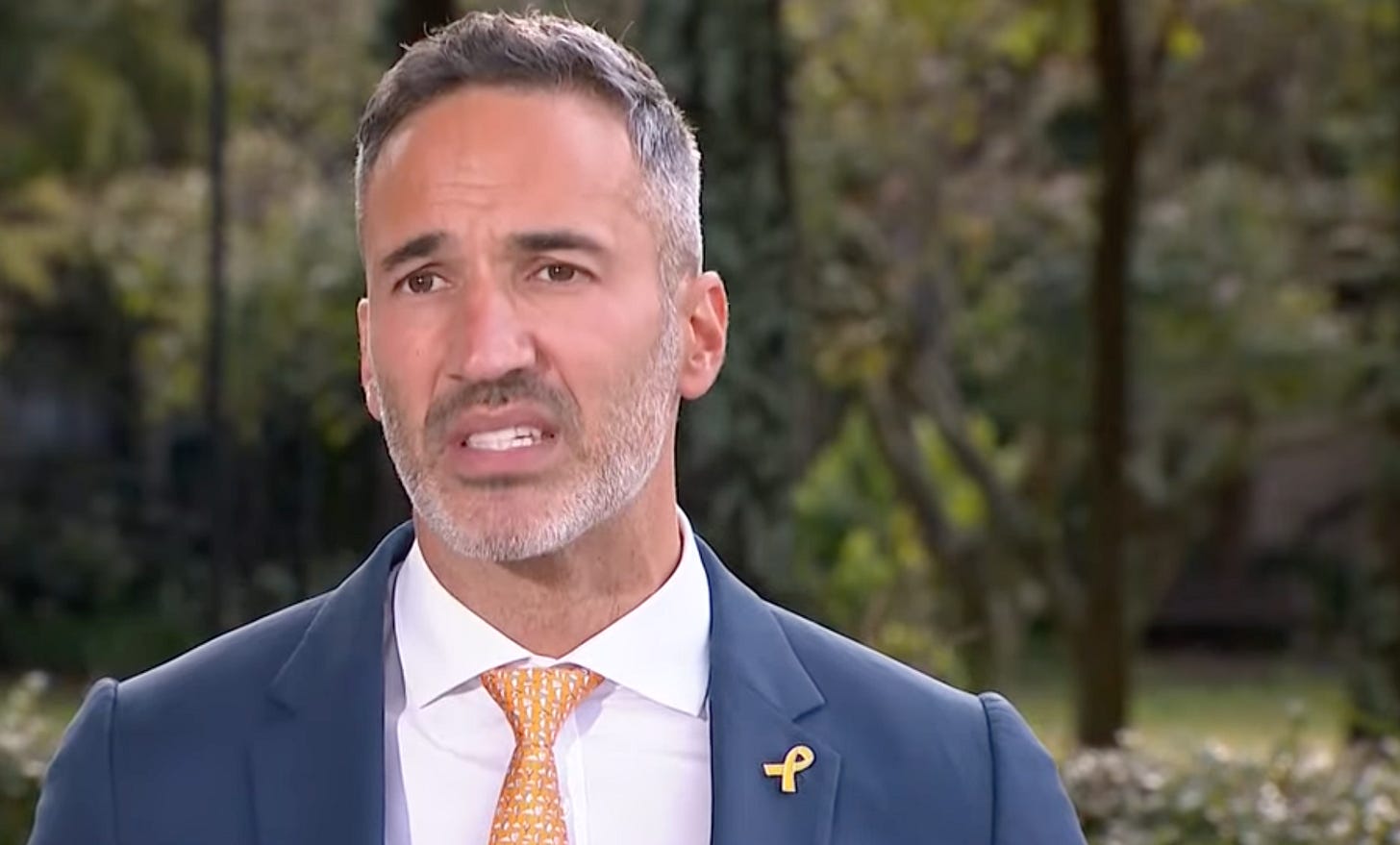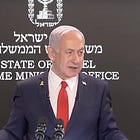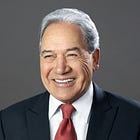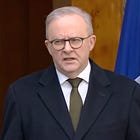Australia Announces Recognition of Palestinian State Despite Strong Israeli Opposition
Australia announced Monday its intention to recognize Palestinian statehood at next month's United Nations General Assembly, breaking from decades of bipartisan policy and drawing sharp criticism from Jewish community leaders who called the decision a "reward for Palestinian violence."
The announcement prompted immediate reactions from both sides of the Middle East conflict, with Palestinian Authority Foreign Minister Varsen Aghabekian Shahin calling it "a long-awaited decision" while Australian Jewish leaders condemned what they characterized as abandonment of a longtime ally.
"The Jewish community was not surprised by this announcement, but it does not lessen our disappointment," said Alex Ryvchin, co-CEO of the Executive Council of Australian Jewry, during a Sydney media conference Monday. "This will be viewed in our community as a punitive measure against Israel, a reward for Palestinian violence and intransigence, and a gesture that shows a fundamental failing to understand why this conflict has endured for so long."
Australian Foreign Minister Penny Wong contacted Shahin Sunday night to inform her of the impending announcement, according to the Palestinian official.
"She said that Australia is contemplating recognition, and I encourage her to do so, because this is in line with international law," Shahin told ABC's Afternoon Briefing program Monday. "It's in line with people's right to self-determination. It preserves the two-state solution."
The decision represents a significant departure from Australia's traditional position, which has supported Palestinian statehood only as part of a comprehensive peace agreement between Israel, Palestinians and Arab states. The move comes as the war in Gaza approaches its 11th month following Hamas's Oct. 7 attack on Israel.
Truth matters. Quality journalism costs.
Your subscription to The Evening Post (Australia) directly funds the investigative reporting our democracy needs. For less than a coffee per week, you enable our journalists to uncover stories that powerful interests would rather keep hidden. There is no corporate influence involved. No compromises. Just honest journalism when we need it most.
Not ready to be paid subscribe, but appreciate the newsletter ? Grab us a beer or snag the exclusive ad spot at the top of next week's newsletter.
Ryvchin criticized the timing and conditions of the recognition, arguing Australia is now "committed to recognizing a state with no agreed borders, no single government in effective control of its territory, and no capacity to live in peace with its neighbors."
The Australian government has attached several conditions to its recognition, including commitments from the Palestinian Authority to reform, hold elections and demilitarize. Shahin confirmed Monday that Palestinian Authority President Mahmoud Abbas has committed to elections "within a year" once conditions allow.
"President Abbas said that the commitment is within a year. But, of course, once the environment is conducive, once Gaza is able to be part of the election process, once East Jerusalem is able to be part of the election process," Shahin said.
The Palestinian Authority foreign minister also confirmed her organization's willingness to accept a demilitarized state, a significant concession in peace negotiations.
"President Abbas said we're even ready to move forward with a demilitarized state," Shahin said. "We said one state, unified state, West Bank, East Jerusalem and the Gaza Strip. We said one gun. We said one system, no two systems. Hamas will not be the governance in the future."
However, Ryvchin questioned whether such commitments could be enforced, pointing to the Palestinian Authority's past failures to control Gaza before Hamas seized power in 2007.
"The commitments made by the Palestinian Authority to live in peace, to demilitarize and engage in widespread reforms are certainly welcomed. But conditions that cannot or will not be enforced are meaningless," Rivchin said. "The Prime Minister and Foreign Minister failed to clearly articulate how the commitments made by the Palestinian Authority will be enforced and the consequences to them if they fail."
The recognition announcement comes as international momentum builds for Palestinian statehood recognition. Several European nations, including Ireland, Norway and Spain, recognized Palestinian statehood earlier this year. The United Kingdom and Canada have also indicated they are considering similar moves.
Shahin emphasized the importance of building international consensus, particularly with the United States, which has not indicated it will recognize Palestinian statehood.
"Yes, the United States is a key in this. And we're trying very hard, alongside our friends, the Arabs and the international community, to get to the ears of President Trump, the team around President Trump, because their inclusion is a key," she said.
New Zealand is considering a similar recognition but has not made an announcement, according to Shahin, who said Palestinian officials will continue building momentum ahead of the UN General Assembly session beginning Sept. 22.
The Palestinian Authority has been implementing reforms for 18 months, according to Shahin, including financial governance improvements, organizational rationalization and curriculum changes to promote "the narrative of peace."
"We already have a reform agenda, which we have embarked on over 18 months ago, and we're moving by the book, and we're presenting our reports on the milestones that we have been achieving," she said.
Rivchin argued the recognition removes incentives for Palestinians to negotiate on key outstanding issues, including recognition of Israel as a Jewish state and final status negotiations on borders, settlements, refugees, security and Jerusalem.
"This announcement removes any incentive or diplomatic pressure for the Palestinians to do the things that have always stood in the way of ending the conflict, specifically the recognition of Israel as a Jewish state and the need to negotiate the five final status issues that separate the parties," he said.
The Australian Jewish leader predicted negative consequences both regionally and domestically, warning the decision could encourage Hamas to continue fighting and "invigorate the most extreme elements of the anti-Israel movement in this country."
"Hamas and other Islamist groups will see that barbarity on a grand scale can bring about political transformation," Rivchin said. "It will encourage Hamas to keep fighting and heap more misery on its people, and it will invigorate the most extreme elements of the anti-Israel movement in this country, and they will seek to escalate their activities and harm our social harmony further."
Israeli Prime Minister Benjamin Netanyahu's government has rejected any role for the Palestinian Authority in post-war Gaza governance, but Shahin dismissed Israeli objections to Palestinian statehood.
"Netanyahu and his team do not want to see a Palestinian state anywhere in Palestine. And they say no to any form of Palestinian governance in the occupied Palestinian territory," she said. "Israel can say whatever it wants. It is the international community. It is international law that dictates what needs to happen in the occupied territory."
The Palestinian official emphasized the urgency of ending the current conflict, citing daily casualties and what she described as targeting of journalists.
"People are dying by the day. People are not only bombarded by Israel, they are dying from starvation. Yesterday, we had brutal killings of journalists, making the number of journalists killed to 250, I believe. And this is part of silencing the truth. This has to stop," Shahin said.
Rivchin acknowledged the humanitarian concerns but maintained that military action against Hamas remains necessary.
"Look, we're all touched by the scenes in Gaza. No one can be human and not be affected by what they're seeing. Everyone wants to see an end to this war," he said. "But unfortunately, Israel has been placed in a dire situation, in a situation they doesn't want to be in. And the only way to end this is by completing the task militarily and then peacefully reconstructing the Strip."
The Australian decision comes as international pressure mounts for a resolution to the Gaza conflict, with ongoing ceasefire negotiations mediated by the United States, Egypt and Qatar. Shahin called for immediate ceasefire alongside the recognition efforts.
"Alongside recognition, we need to strengthen the push towards ceasefire. This is the immediate need on the Gaza front," she said.
The recognition will be formalized at the UN General Assembly session next month, joining a growing number of countries that have recognized Palestinian statehood in recent months. The move represents one of the most significant shifts in Australian Middle East policy in decades and is likely to strain relations with Israel while strengthening ties with Arab and Muslim nations.
Both Ryvchin and Shahin acknowledged they had received advance notice of the decision through private government discussions, though they expressed vastly different reactions to the news.
"The writing's been on the wall for a long time, both in terms of the public statements by the prime minister and his cabinet, but also from our private discussions with government. We knew this was coming at some point in time, so we're not surprised," Rivchin said. "But as I said, it doesn't lessen our disappointment."
The Palestinian Authority foreign minister expressed gratitude for what she called international recognition of Palestinian rights after seven decades of displacement.
"This is the right thing to do. It's in line with international law, and it gives Palestinians a sense of hope for the future. This hope has been doomed in the last two years, and the Palestinians will have time to breathe and see the world around them, pushing them so that they can materialize their state," Shahin said.
Got a News Tip?
Contact our editor via Proton Mail encrypted, X Direct Message, LinkedIn, or email. You can securely message him on Signal by using his username, Miko Santos.
As well as knowing you’re keeping Mencari (Australia) alive, you’ll also get:
Get breaking news AS IT HAPPENS - Gain instant access to our real-time coverage and analysis when major stories break, keeping you ahead of the curve
Unlock our COMPLETE content library - Enjoy unlimited access to every newsletter, podcast episode, and exclusive archive—all seamlessly available in your favorite podcast apps.
Join the conversation that matters - Be part of our vibrant community with full commenting privileges on all content, directly supporting The Evening Post (Australia)
Not ready to be paid subscribe, but appreciate the newsletter ? Grab us a beer or snag the exclusive ad spot at the top of next week's newsletter.












